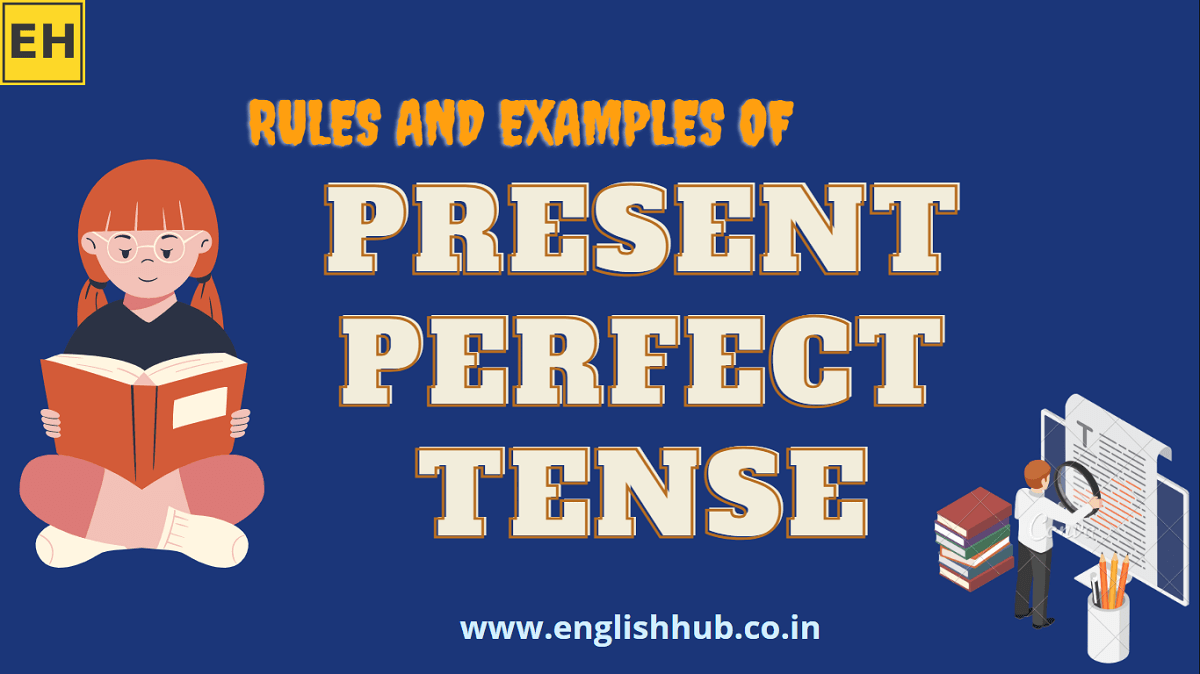Introduction
The word Tense is a term in English grammar and refers to a form of the verb that indicates time. Time is a universal, non-linguistic concept with three divisions - Past, Present and Future; by tense, we understand the correspondence between the form of the verb and our concept of time. When making a statement it is essential to indicate whether a situation exists now, existed in the past or is likely to exist in the future.
The Present Perfect tense is used to indicate that an action has been done at an indefinite time in the past, with no specific time reference. Present Perfect is used to describe the actions that started in the past and were completed recently. The action may have occurred only once or several times. Present Perfect is used to describe the experiences.
Present Perfect Tense - Rules and Examples
✅ Rule 1
This tense is used to express an action that has been completed just now; as,
- I have written the letter.
✅ Rule 2
A past action which is still continuing; as,
- He has served me for 5 years.
- She has been ill since Monday.
➤ Note the difference:
- He has served me for 5 years (He is still serving).
- He served me for 5 years (He is no longer in my service).
✅ Rule 3
To suggest the decision made in the past is still of importance in the present; as,
- The government has cut university budgets, consequently, the dean has increased the size of most classes.
✅ Rule 4
To express past action without a definite time; as,
- I have read the paper.
✅ Rule 5
To express an action done in the space of time not yet exhausted; as,
- It has rained all week.
✅ Rule 6
To express something whose consequences still remain; as,
- I have been ill.
✅ Rule 7
It denotes an action completed at the time of speaking; as,
- She has worked all the sums.
✅ Affirmative Sentences
Pattern:
➤ Subject + has/have + verb (IIIrd form) + O/A.
- She has finished the task.
- I have read this report.
✅ Negative Sentences
Pattern:
➤ Subject + has/have + not + verb (IIIrd form) + O/A.
- We have not met her so far.
- He has not learnt his lesson.
✅ Interrogative Sentences
Pattern:
➤ Has/have + Subject + verb (IIIrd form) + O/A.
➤ Q.W. + has/have + Subject + verb (IIIrd form) + O/A.
- Has Gopal milked the cow?
- Have you ever seen a white elephant?
- Why has the boy not come here yet?
- Which books have you purchased?
✅ Adverbials
➤ Just, already, yet, never, so far, lately, recently, etc.
You May Also Like 👇
Loading...

